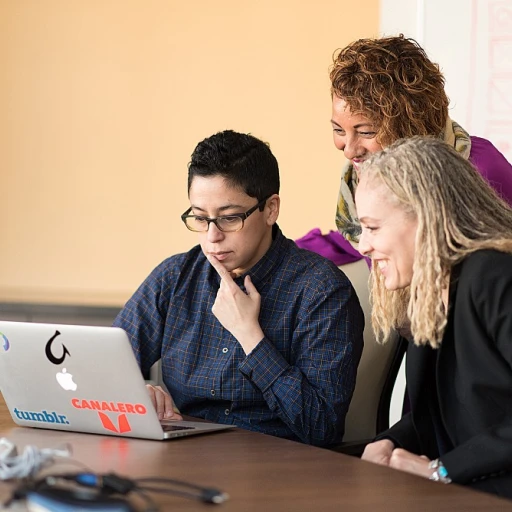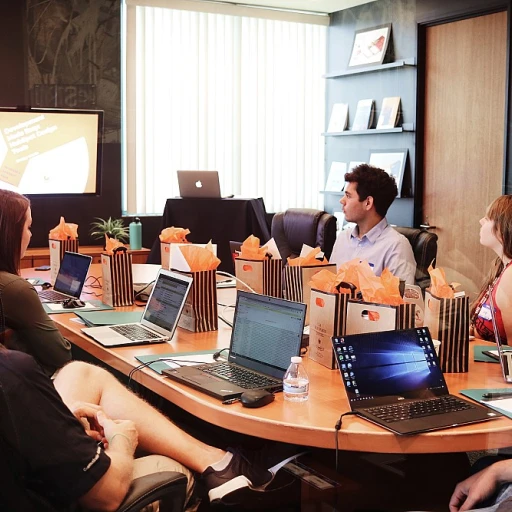
Understanding the Role of a Mentee
Defining the Mentee's Journey
Entering the realm of professional mentoring often feels like navigating uncharted territory, particularly for emerging professionals seeking guidance. Embracing the role of a mentee involves understanding the essence of what a mentoring relationship truly entails. As a mentee, your journey is pivotal not just for personal growth, but also for achieving career objectives. Being a mentee demands stepping into a space of vulnerability, openness to feedback, and a genuine willingness to learn. This holds true whether you are a high school student engaging in youth mentoring programs or a graduate student aiming for academic success. At its core, the mentor-mentee relationship is a partnership where mentors provide invaluable support and insights that fuel both personal and professional development. Navigating mentoring relationships means acknowledging the mutual benefit. While mentors bring experience, mentees contribute fresh perspectives and enthusiasm. This dynamic fosters an enriching environment for both parties, paving the way for constructive interactions and growth opportunities. Understanding the role of a mentee also means preparing for the commitments and responsibilities that accompany mentorship. It's essential for mentees to proactively engage, communicate openly, and set clear goals, which will be elaborated on further in our discussion. To delve deeper into the complexities of professional mentoring, this guidance article explores the nuances involved. A successful mentee is one who not only seeks advice but also rises to the challenge of implementing insights gained, turning potential into tangible success.Identifying the Right Mentor
Choosing Your Guiding Star
Identifying the right mentor often sets the tone for the entire mentoring journey. It's essential to find someone who not only aligns with your career aspirations but also offers the right support to help you thrive. Think of this mentor mentee relationship as a cornerstone for your professional development.
To begin, reflect on your personal and career goals. Are you a high school student embarking on future academic pursuits, or a young person at the start of your career? Understanding your unique needs can guide you to mentors who have walked a similar path and who will offer insights tailored to your journey.
Evaluating Compatibility and Expertise
When scouting for potential mentors, consider their professional background, experience in your field of interest, and their involvement in mentoring programs. Programs such as peer mentoring or youth mentoring initiatives can facilitate interactions with mentors who are seasoned in nurturing young talent and fostering academic and mental health support.
Ask yourself:
- Does this mentor have the expertise in the areas I'm seeking guidance?
- Can this individual provide the support necessary for my career rise?
- Have they been involved in national mentoring or similar programs?
Recognizing the ideal mentor is not solely about matching titles or industry niches; it’s about the genuine connection and the potential for a constructive relationship. Seek out those who champion professionals’ growth, be it through their active role in a rise program or as peer mentors to graduate students.
Cultivating the Right Environment
The best mentor mentee relationships thrive in conducive environments. Reach for mentorship settings that encourage open communication and trust. Some institutions or organizations offer structured mentorship that eases interactions and maximizes benefits for both mentors and mentees. For further understanding, check out how structured mentoring sessions can enhance this experience.
Ultimately, your chosen mentor should be someone who inspires you and believes in your growth, encouraging you to reach beyond your current limits and paving the way for career and personal success.
Setting Goals and Expectations
Articulating Clear Objectives for the Mentoring Journey
Mentoring relationships thrive on clarity and mutual understanding. One of the foundations of a successful mentorship is setting clear goals and expectations at the outset of the relationship. This process not only helps in aligning the mentor's expertise with the mentee's career aspirations but also in carving a path that will guide every interaction.- Define Your Goals: As a mentee, it's essential to identify what you hope to achieve from your mentoring relationship. Whether it's academic success, career advancement, or gaining a broader perspective on a particular industry, your goals should be specific and attainable. Articulating these objectives clearly will allow your mentor to provide focused support and guidance.
- Communicate Expectations: Discuss your expectations and limitations with your mentor. Are you seeking support with mental health in a professional context? Do you wish to accelerate your progress in a specific domain? Transparency about these facets can help set realistic boundaries and find common ground in your engagements.
- Embrace Flexibility: While setting goals is vital, maintaining a degree of flexibility can enhance the mentoring program's dynamism. Be open to modifying your objectives as your mentorship progresses, allowing for organic growth that takes advantage of unforeseen learning opportunities.
Overcoming Common Challenges
Navigating Hurdles in Your Mentoring Journey
Embarking on a mentoring journey, whether it be through school or a workplace program, can present a variety of challenges. The key is recognizing and addressing these hurdles proactively to ensure a fruitful relationship between mentors and mentees.- Aligning Expectations: Early on in the mentor-mentee relationship, it's crucial to ensure that both parties have a mutual understanding of their roles and goals. Misalignment can lead to dissatisfaction and can hinder the mentee's career and academic progress. Open and regular communication is essential.
- Building a Strong Foundation: The initial interactions are vital in building rapport and trust. Mentors provide guidance and support, but it is the mentee's responsibility to engage actively and openly in the relationship. This foundation allows the mentoring relationship to rise to new heights.
- Addressing Power Dynamics: Often in a mentor-mentee relationship, especially in professional or academic settings, there can be an imbalance of power and experience. It's important for mentors to be conscious of this dynamic and strive to empower their mentees, creating a safe space for learning and growth.
- Overcoming Communication Barriers: Effective communication is the cornerstone of successful mentoring. Mentees should feel encouraged to voice concerns or needs, while mentors should be attentive and approachable. Regular check-ins can help maintain a healthy mentoring relationship.
- Nurturing Mental Health: Particularly within youth mentoring and high school programs, mental health should be acknowledged and prioritized. Establishing a support system within the mentoring program can ensure that mentees feel supported in every aspect of their personal and professional development.
Maximizing the Mentoring Relationship
Enhancing the Mentoring Experience for Successful Development
A successful mentoring program is grounded in maximizing the mentor-mentee relationship and requires diligent efforts from both parties. For mentees, the task is to draw the utmost from the possible academic and career advantages the relationship provides. Here’s how to enhance this journey:- Engage Actively: Communication is the cornerstone of a healthy mentoring relationship. Engage actively with your mentor, asking questions and expressing your thoughts clearly. These engagements will foster mutual understanding and better academic or career support.
- Open to Feedback: Every interaction with your mentor should be a learning opportunity. Being receptive to feedback and constructive criticism can propel your growth and career success in ways the traditional schooling system may not offer.
- Utilize Available Resources: Often, mentoring programs host workshops and events that can supplement your interactions with your mentor. Attend these to expand your knowledge beyond the direct mentor-mentee dialogues. These programs frequently tackle crucial topics, including professional development and mental health.
- Apply Learnings: Mentoring is not just theoretical advice; it's practical guidance. Implement the insights and suggestions from your mentor in real scenarios. This not only demonstrates your willingness to learn but can also yield tangible improvements in career and academic endeavors.
Reflecting on Growth and Progress
Evaluating the Journey and Celebrating Wins
As a mentee progresses on their professional journey, it's crucial to continuously reflect on the growth and development achieved through the mentoring program. This reflective practice not only fosters personal growth but also strengthens the mentor-mentee relationship. Here are some key aspects to consider:- Track Achievements: Regularly review the goals set at the beginning of your mentoring experience. Have you reached them or made significant progress? Recognize the accomplishments, both big and small, which can further motivate you on your career path.
- Seek Feedback: Constructive feedback from your mentor is integral to your development. It offers valuable insights into areas where you excel and where you can improve. Mentors provide guidance on how to navigate challenges which is vital for career success.
- Revisit Goals: As you advance in your career or academic journey, your goals may evolve. Consider revisiting and adjusting them to align with your current path and priorities, ensuring continued growth and relevance in your mentoring relationship.
- Celebrate Milestones: Don't overlook the importance of celebrating your successes. Whether it's completing a challenging project or advancing in your schooling, acknowledging these milestones encourages a positive mindset and reinforces your progress.
- Assess Emotional Growth: Evaluate the improvements in mental health and emotional resilience gained through your interactions with your mentor. This can contribute significantly to how you handle future professional and personal challenges.
- Plan for Future Growth: As a graduate student or young person entering the workforce, use the skills and knowledge acquired from your mentoring experiences to lay a foundation for future success. A well-supported mentoring relationship helps you continue to rise professionally.













